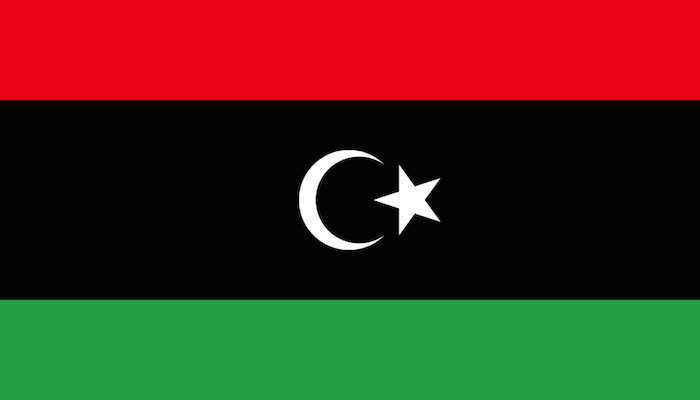There are now two rival governments in Libya, an unrecognized one in the western capital and an internationally recognized (and elected) one in the eastern city of Tobruk. From physical infrastructure to virtual infrastructure, everything is a target for the rivals. Politically and militarily, the western faction seems to have gained the upper hand for the moment, but on the economic front, the eastern faction is still maintaining competitive dominance in the battle for control and influence.
Libya is a country with one of the largest oil reserves in the world, and unsurprisingly one of the biggest political struggles between the rival governments is over effective control of the oil production, sales, and revenues — as explained by Jason Pack and Rhiannon Smith:
This battle for legitimacy and power is being played out within Libya’s two most influential institutions: the Central Bank and the National Oil Corporation (NOC). The HoR voted in September to dismiss Sadiq al-Kabir from his position as Central Bank governor, however Kabir appears to still be running the bank. Through him, the Islamist-aligned government has at least some control over Libya’s finances.
Last week, the Central Bank transferred Hassi’s [unrecognized] government enough funds to cover three months of family allowance payments, while a GNC-controlled public spending authority [allied with it] has managed to impose a payment limit of 200,000 Libyan Dinar across the public sector.
Meanwhile, Hassi’s Oil Minister Mashallah al-Zwey has physically taken over the NOC headquarters in Tripoli along with the NOC website. As such, officials are reportedly taking direction from him. Indeed, the official Libyan government website has been taken over by Hassi’s National Salvation government. Those cyberspace realities go a long way to validating the Tripoli government’s claim to sovereignty and legitimacy.
Based on this, one might expect a total breakdown in cooperation on oil between the rival factions. Instead, production is up and revenues are continuing to be distributed across the country. It’s a bit haphazard, to be sure, but they haven’t stopped.
Why? The realities of the complex setup of pre-Gaddafi oil royalty systems and citizen salaries, crossed with the international oversight of the country’s oil sector following the 2011 civil war, have resulted in a bizarre and almost amusing level of cooperation, even as the two factions send wave after wave of militias and soldiers and jets at each other.
Here’s the basic setup according to Reuters:
- Oil comes out of the ground all over the country.
- Oil is largely shipped to export terminals in eastern Libya controlled by the recognized government.
- Oil is sold legally on the international market by brokers.
- Money from these sales is deposited directly into an overseas account established by the international community.
- The only entity able to access the money overseas to bring it back to Libya is controlled by supporters of the unrecognized government and the western rebels.
- Most of the oil money brought back into Libya is paid to average citizens, fighters, soldiers, police, etc. in all areas of the country under a system established by Gaddafi. All beneficiaries nominally “work” for the government (either one) in jobs that may or may not exist.
If you detected a bit of a mutually assured destruction or prisoner’s dilemma-style roadblock in there, so did pretty much everybody involved, which is apparently why the two rival forces haven’t stopped the oil party.
When everyone in Libya is employed in a no-show government job funded by oil revenues, everyone in Libya is committed to keeping the oil flowing and being sold legally, despite their differences, even in the middle of what has clearly become a new civil war. Since Western rebels control the payouts and the Eastern government controls the exports, it’s important for everyone to work together even as they’re at war — or else nobody gets salaries. Without salaries, and barring substantially more proxy aid from the Persian Gulf, both sides would collapse as their hired combatants suddenly exit the war.
Unilaterally halting the exports automatically halts the revenue stream, while unilaterally halting the revenue payouts would trigger retaliatory cancellation of the oil exports. The only self-preserving and logical course, therefore, is for neither side to try to hold the other hostage on the oil cycle, at least until both the revenue transfers and exports are controlled by the same side, whether by force or by the international community intervening on the funds repatriation process.



